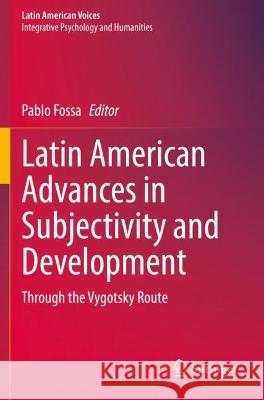Latin American Advances in Subjectivity and Development: Through the Vygotsky Route » książka
topmenu
Latin American Advances in Subjectivity and Development: Through the Vygotsky Route
ISBN-13: 9783030729554 / Angielski / Miękka / 2022
This is the first book in English to show how the work of Lev Vygotsky gave rise to a prolific and original school of cultural-historical psychology in Latin America. In recent decades, Latin American researchers have expanded Vygotskyan conceptualizations and applied practical theory to psychological and educational research and practice, but until now this production remained virtually unknown for English speaking audiences since it has been mainly published in Spanish and Portuguese. This timely volume contributes to change this situation by presenting a panoramic picture of the state of the art of cultural-historical psychology in Latin America.
The book is divided in two parts. The first part shows how Latin American researchers used Vygotsky’s work to develop new theoretical elaborations and empirical advances to deal with different political, social and cultural problems in the region. The second part presents an overview of the current state of cultural-historical psychology in Latin America. Throughout its 15 chapters, the book shows how Latin American researchers contributed to the studies of different aspects of the cultural-historical theoretical conception of the development of higher psychological functions, such as concept formation, inner speech, zone of proximal development and imagination, and how these theoretical elaborations have been applied to research and practice in fields such as sociocultural psychology, developmental psychology, psychotherapy and education in Argentina, Brazil, Chile, Colombia, Cuba, Mexico, Peru and Puerto Rico.
Latin American Advances in Subjectivity and Development - Through the Vygotsky Route will be an invaluable resource to researchers, students and practitioners in the fields of psychology, education and other social sciences interested in discovering or learning more about the original Latin American school of cultural-historical psychology.











